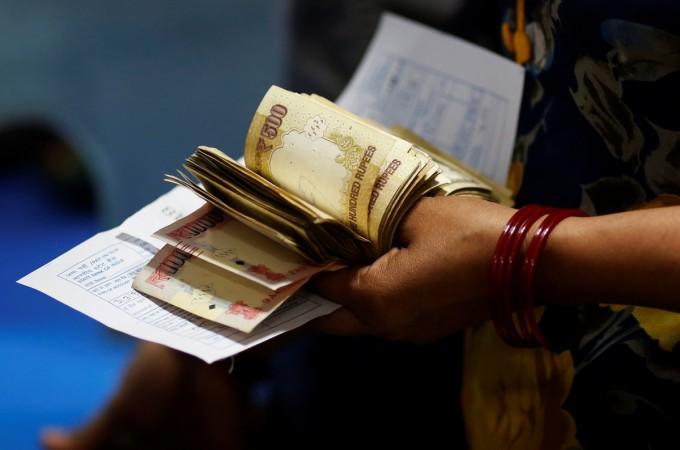
The finance ministry on Friday said that political parties depositing old demonetised Rs 500 and Rs 1,000 currency notes in their bank accounts will be exempted from tax scrutiny if donations taken are below Rs 20,000 per individual and properly documented with the donor's complete identity.
Revenue Secretary Hasmukh Adhia said that the Centre is not fiddling around with the tax exemption being made available to political parties and that they were free to deposit the demonetised notes in their bank accounts as long as donations were below Rs 20,000 per individual and well documented. If donations are above the prescribed limit, they have to be deposited through cheques or bank drafts as per the law, Adhia added.
"If it is a deposit in the account of a political party, they are exempt. But if it is deposited in individual's account then that information will come into our radar. If the individual is putting money in his own account, then we will get information," Adhia told reporters.
Section 13A of the Income Tax Act, 1961 exempts political parties from income tax on house property, other sources, capital gains and income by way of voluntary contributions received from any person. These categories are exempted from monetary or any other limit, while the income that is exempted is not included in the total income of the political party for assessment.
The tax exemption, however, applies only if the party properly documents all the income and gets these accounts audited by a chartered accountant.
However, Delhi Chief Minister Arvind Kejriwal lashed out at the government following the announcement and demanded that a committee be set up to probe the funding of political parties.
"Common people are being investigated if they deposit Rs 2.5 lakh individually. But if political parties are not going to be investigated even if they deposit Rs 2,500 crore following the decision, then it is wrong. We demand setting up of an independent commission to probe into bank accounts details of political parties over the past five years, to investigate their sources of funding," Kejriwal said at a press conference.
Adhia also said that it was necessary for farmers, who have been exempted from paying tax on income on agriculture, to produce a self-declaration that their earnings are less than Rs 2.5 lakh annually in order to make bank deposits without PAN. Farmers, who are unable to produce a self-declaration, will have to produce their PAN cards, the Press Trust of India reported.
"A farmer has to give self declaration in Form 60 where he has to declare that his income is less than Rs 2.5 lakh. If he files Form 60, then PAN is not required. Those who are not able to give declaration, they have to give PAN... We will not go unnecessarily after those with Rs 2.5 lakh deposits. But where we find people have tried to misuse the provision by putting in multiple accounts in different banks (we will go after them)," Adhia said.
Adhia added that PAN numbers of all existing account holders except for Jan Dhan/BSBD accounts would be accumulated within one or two months.
The ministry has offered a new tax evasion amnesty scheme for individuals and companies holding unaccounted cash. Under this scheme, 50 percent tax will be levied on declarations and a quartered of the total amount will be parked in a non-interest bearing deposit for four years.









!['Had denied Housefull franchise as they wanted me to wear a bikini': Tia Bajpai on turning down bold scripts [Exclusive]](https://data1.ibtimes.co.in/en/full/806605/had-denied-housefull-franchise-they-wanted-me-wear-bikini-tia-bajpai-turning-down-bold.png?w=220&h=138)



